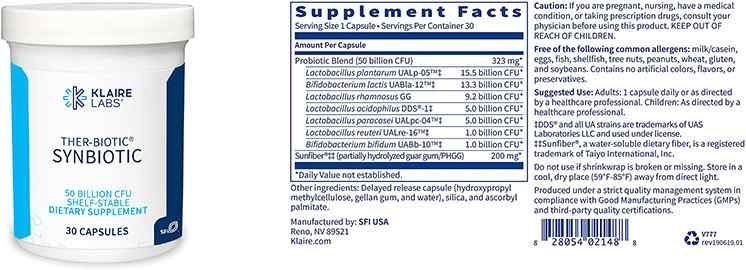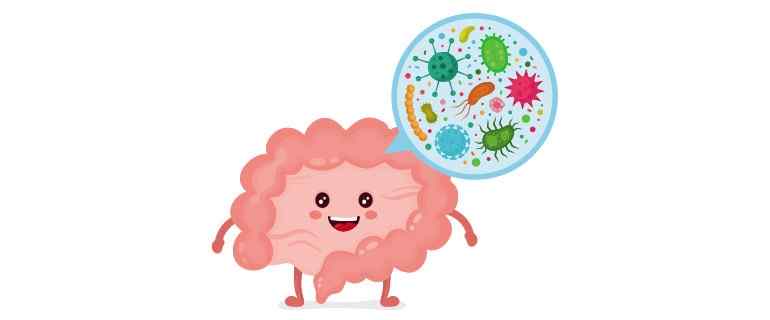Are the Benefits of Probiotics Actually Legit?

Every doctor says to take probiotics, especially when taking an antibiotic, but there are so many options – and who actually benefits! Worry not - our Pharmacists at Harbor Compounding Pharmacy have broken it down for you.
PROS
good for people with:
- Diarrhea, especially after antibiotic use.
- C. difficile related diarrhea, especially in hospitalized patients - it’s best to start during the first 2-days of antibiotic treatment.
- Bifidobacterium lactis, in particular—can help with constipation. Overall, they improve gut transit time, stool frequency, and stool consistency.
- IBS & ulcerative colitis
- May shorten duration of colds
- May lower blood pressure in patients with higher ranges of BP
- Allergies to food that may contain probiotics (diary, yogurt, fermented veggies: Sauerkraut, kombucha, pickles, kimchi, miso soup, tempeh)
CONS
- Lack of evidence to support claims for: lowering cholesterol, alleviating allergic skin conditions (like eczema), treating ulcers or urinary tract infections, improving vaginal health, reducing the risk of colon cancer, easing anxiety and depression, and warding off traveler’s diarrhea.
- In some people, probiotics may, at least in theory, overstimulate the immune system or adversely affect metabolic pathways.
- Consult your doctor if you are: immunocompromised, have certain bowel problems, or are seriously ill; kids
Choosing the right strain is crucial.
Recent research has Identified a few different magical microorganisms that may help, depending on your health issue, so make sure you have the right strain:
If you're healthy and want to stay that way...
Shoot for 50 to 100 billion CFUs of a combo of lactobcillus and bifidobacterium. Starting with a large amount of CFUs will either keep you riding high (by supporting immunity) or trigger small but yucky reactions, like gas or nausea. If you notice those, scale back to 50 billion, then 20 billion, until you feel like your usual (but better) self.
If you have annoying tummy troubles...
Allow your predominant symptoms to guide you. Bloated and constipated? Look for lactobacillus acidophilus or lactobacillus casei, which help restore gut flora. Can't stop going number two? Types with saccharomyces boulardii can ease antibiotic-associated diarrhea and even prevent extreme cases caused by infections
If you get recurring yeast infections...
The itch-meets-ouch infection is caused by an overgrowth of bad bacteria. To "recolonize" your vagina, you want the good bacteria that's found there: lactobacillus acidophilus. Go the direct route. Use 2 to 5 billion CFUs in an OTC probiotic suppository, or wet an oral capsule to soften, then insert it. Some physicians suggest doing this every other day at the end of your period (three times total for prevention.)
If you struggle with anxiety...
Your brain and gut “talk”, and both produce neurotransmitters such as serotonin (the happiness chemical). Some physicains think balancing your gut may help treat anxiety, because it promotes better communication between the two. Opt for lactobacillus plantarum and bifidobacterium bi-fiodum, two strains for anxiety, per research. Try 10 billion CFUs for three to five days. If your tum feels fine, go up by 10 bill.
If you take a probiotic, you need to eat prebiotics.
Prebiotics, nondigestible carbs that feed friendly bacteria and help them multiply. They may even be helpful on their own, at recalibrating microbiota that have been thrown out of whack by stress; a recent study found mice who ate prebiotics slept better after a stressful experience. Hutkins advises taking them daily in the form of food, not pills, because it's difficult to get the needed amount from a supplement. Prebiotics are found in wholegrain oatmeal, bananas, onions, garlic, and asparagus.
Make sure any supplements you buy are coated or delayed release
Some probiotic strains can't survive the acidity of your gut. So if you're taking a supplement, make sure it's coated; the outer shell will help it reach your intestines intact. If you can find only an uncoated version, take it with food to help protect it from the aggressive environment.
Our Pharmacists recommend a shelf-stable (no refrigeration), delayed-release probiotic called Ther-Biotic Synbiotic.
Professional Strength
Packs a powerful punch with 50 billion CFUs per capsule
Multi Strain Probiotic
Contains 6 strains including Lactobacillus acidophilus DDS®-1 and Bifidobacterium lactis UABla-12™, two clinically proven strains that support healthy digestion, GI comfort, and immune function†
Prebiotic Technology
Nondigestible carbs that feed friendly bacteria and help them multiply.





